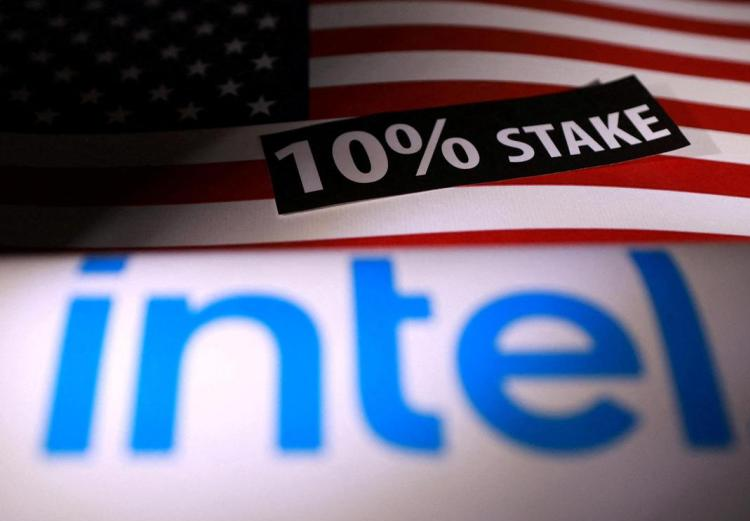
Intel said that a 10% stake held by the US government could pose risks to the company's business, including damaging international sales and limiting the possibility of future government subsidies.
Reuters reported that after the government decided to convert the subsidy into an equity investment in Intel, the company disclosed new "risk factors" in a recently released securities filing.
The company said it is still uncertain whether this deal will lead other government agencies to try to convert existing subsidies into equity investments or be reluctant to continue providing future subsidies as a result.
Intel also said that the US government becoming a major shareholder might affect its overseas business, as it could subject the company to additional regulations or restrictions, such as foreign investment subsidy laws in other countries.
In addition, issuing shares to the US government at a discount lower than the current market price will affect the rights and interests of existing shareholders.
Intel announced last Friday (the 22nd) that the US government will purchase 9.9% of Intel's common stock for $8.9 billion. The investment amount is equivalent to $20.47 per share, which is about 17% less than Intel's closing price of $24.8 on Friday.
This sum comes from an outstanding $5.7 billion grant under the Chips Act and $3.2 billion from the Secure Enclave Program related to national defense security under the Chips Act. This transaction is expected to be completed on August 26th.
In the fiscal year ending December 28 last year, Intel's overseas sales accounted for 76% of its total revenue, among which the revenue from China accounted for 29% of the total revenue.
This deal was reached after the meeting between Intel President Chen Liwu and US President Trump, and it is also the latest unconventional intervention by Trump against US companies.
Trump had previously claimed that Chen Liwu's relationship with Chinese enterprises constituted a serious conflict of interest and asked him to resign.

According to a recent report by Rich Asplund, a columnist for Barchart, the global sugar market is currently experiencing a complex and profound supply-demand game.
According to a recent report by Rich Asplund, a columnist f…
On January 13th local time, the three major US stock indice…
Recently, the 2026 edition of the MIT Technology Review lis…
On January 15, 2026, the US military announced the seizure …
At the 2026 J.P. Morgan Healthcare Conference, a joint anno…
For much of 2025, the market was rethinking whether the dol…